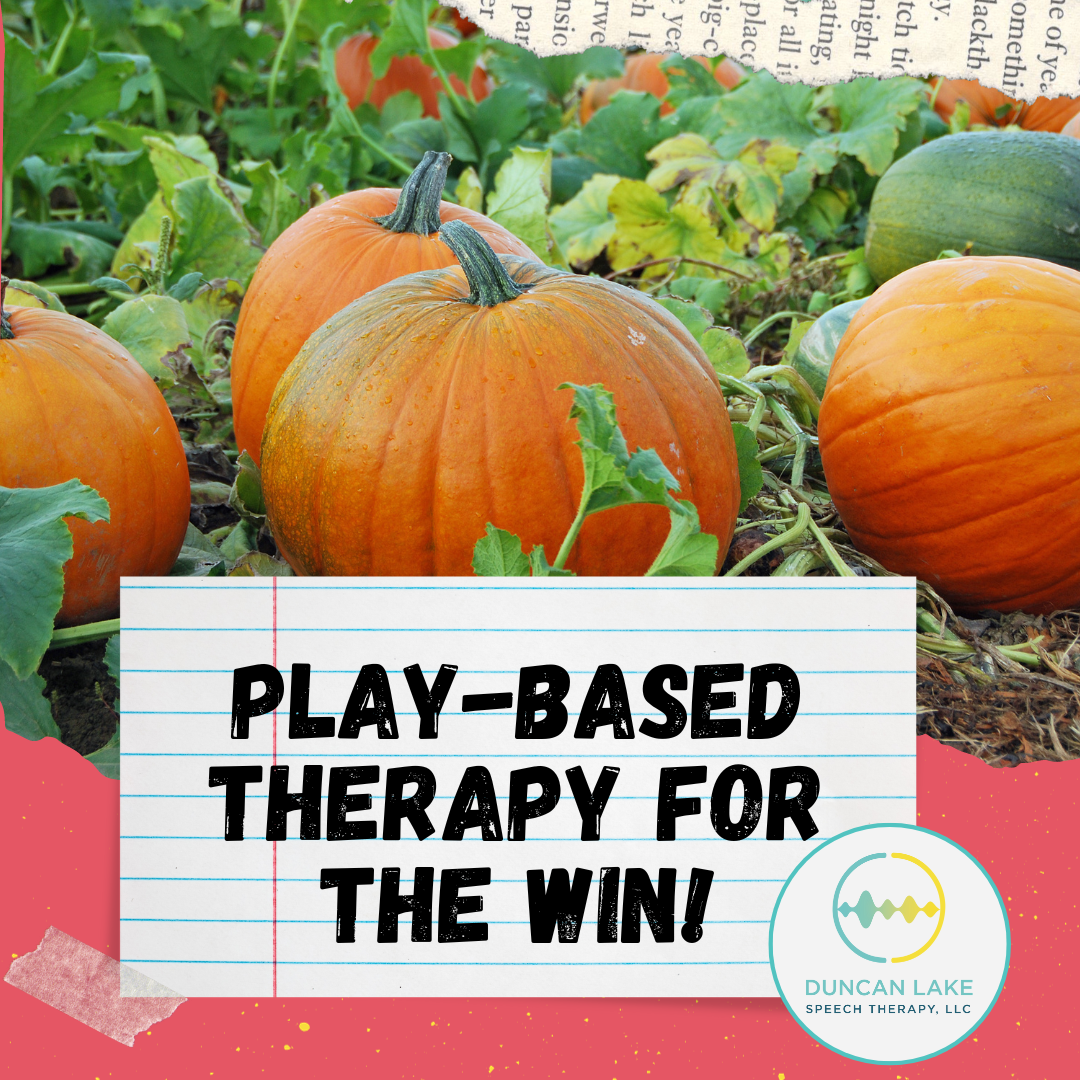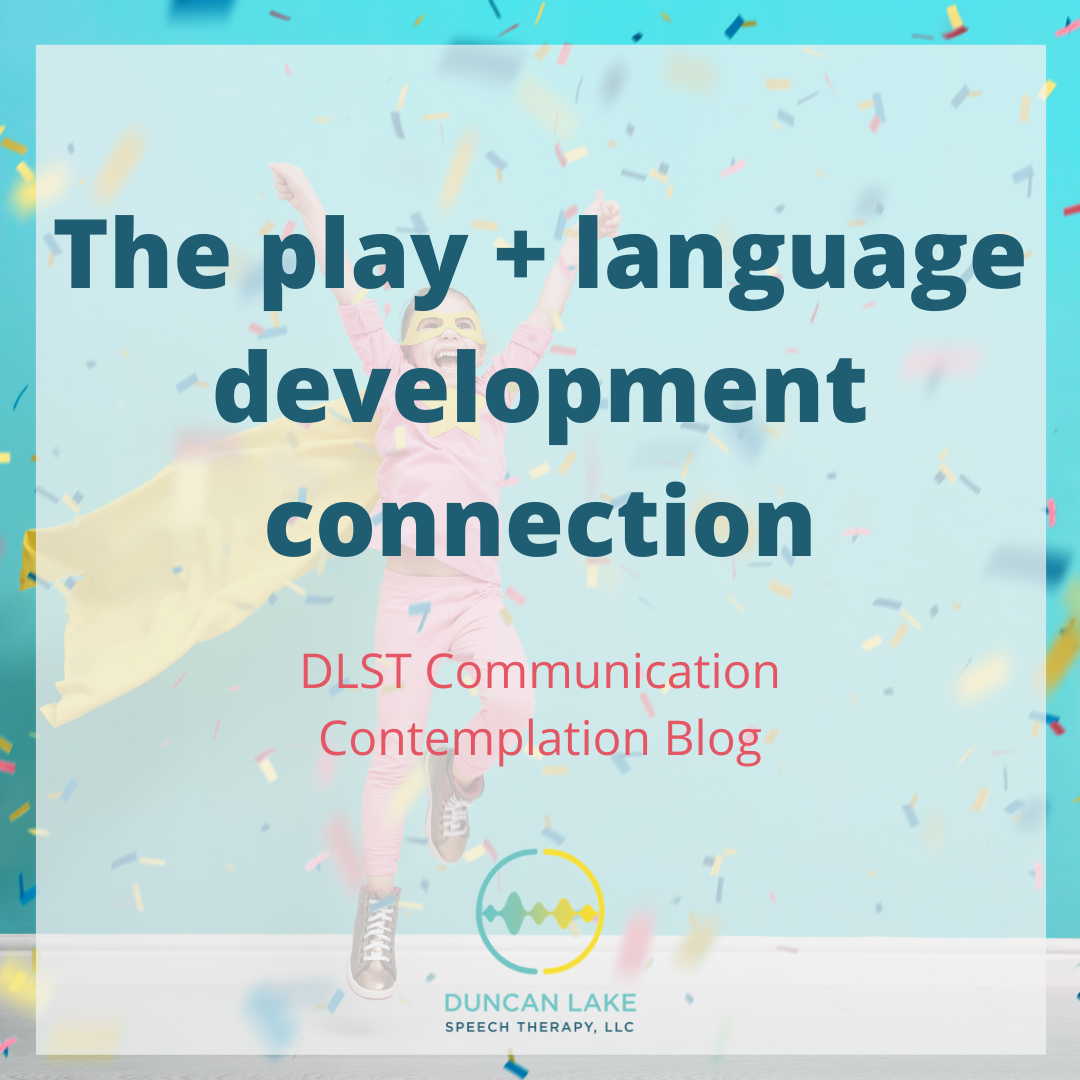
by Tami Teshima | Jan 4, 2024 | Language Development
by Hannah Blackwell, M.A., CCC-SLP Speech-Language Pathologist Duncan Lake Speech Therapy, LLC When a child is learning to talk, it’s only natural for the adults around them to want to encourage and help them speak. It’s exciting! We want them to learn new words and...

by Tami Teshima | Sep 27, 2023 | Language Development, Speech-Language Pathology
by Hannah Blackwell, M.A., CCC-SLP Speech-Language Pathologist Speech therapy sessions can look very different depending on the client and the clinician. A commonly used approach with children is to work therapy goals into play-based contexts. Sometimes parents may...

by Tami Teshima | Jul 6, 2023 | Early Intervention, Language Development
by Anna Dubiak, M.S., CCC-SLP Duncan Lake Speech Therapy, LLC We have received many a calls from concerned parents reporting to us that their child is not talking and they are not sure what to do. Some say doctors, mom friends, or the internet has told them not to...

by Tami Teshima | May 24, 2023 | Bilingualism, Language Development
by Hannah Blackwell, M.A., CCC-SLP Duncan Lake Speech Therapy Many are worried about the possible negative effects on language development that raising their child to be bilingual may have. However, there is no evidence indicating that bilingualism causes language...

by Tami Teshima | Feb 9, 2021 | AAC, Language Development
I talk a lot about core words on our Facebook and Instagram pages, but what in the world are they and why would anyone teach them? AssistiveWare defines core words as the “50-400 words that make up the majority of everything we say.” There are a bunch of...

by Tami Teshima | Dec 22, 2020 | Language Development
It’s the time of the year toys and play get a lot of attention. Hey, I’m all about it! Play is such a powerful language learning tool, and, above all, is enjoyable for the children. I thought I’d take some time this week do discuss the connection...








Recent Comments